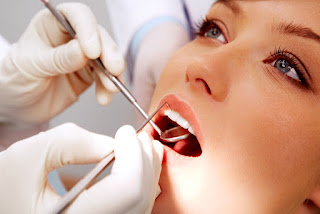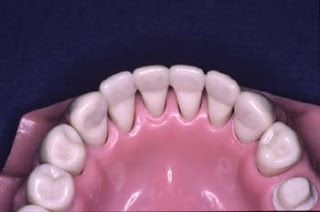Zen Dentistry?

When a dentist is truly"in the groove", he or she performs their procedures without thought about the degree of difficulty involved or the time a particular procedure is taking to complete. The only thing on their mind should be the proper performance of their work. Thought given to non essential matters can be counter productive. Most dentistry performed with a dentist's drill involves creating "micro sculptures" and as such is a a creative process, often accomplished by performing a series of small cuts into the tooth. Some are "milling motions" and other times the drill is used like a paint brush, refining the preparation, until it takes exactly the desired shape. Because of the inherent artistic component, thinking about the time involved or the difficulty can get in the way because it interferes with a dentist giving their full attention to the task at hand. The challenge should be fully embraced! The best analogy I can think of, is dri...


